BRIGHT-SIDED

How the Relentless Promotion
of Positive Thinking
Has Undermined America

Barbara Ehrenreich
Metropolitan Books
Henry Holt and Company
New York

Metropolitan Books
Henry Holt and Company, LLC
Publishers since 1866
175 Fifth Avenue
New York, New York 10010
[http://www.henryholt.com] www.henryholt.com
Metropolitan BooksTM and  TM areregistered
TM areregistered
trademarks of Henry Holt and Company, LLC.
Copyright 2009 by Barbara Ehrenreich
All rights reserved.
Distributed in Canada by H. B. Fenn andCompany Ltd.
Library of Congress Cataloging-in-Publicationdata
Ehrenreich, Barbara.
Bright-sided : how the relentless promotionof positive thinking has undermined America / Barbara Ehrenreich.1st ed.
p. cm.
Includes bibliographical references andindex.
ISBN 978-0-8050-8749-9
1. OptimismUnited States. 2.HappinessUnited States. 3. Self-confidence United States. 4. Success inbusinessUnited States. I. Title.
BF698.35.O57E37 2009
155.2'32dc22
2009023588
Henry Holt books are available for specialpromotions
and premiums. For details contact: Director,Special Markets.
First Edition 2009
Designed by Meryl Sussman Levavi
Printed in the United States of America
1 3 5 7 9 10 8 6 4 2
To complainers everywhere:
Turn up the volume!
Contents

BRIGHT-SIDED
Introduction

A mericansare a positive people. This is our reputation as well as our self-image. Wesmile a lot and are often baffled when people from other cultures do not returnthe favor. In the well-worn stereotype, we are upbeat, cheerful, optimistic,and shallow, while foreigners are likely to be subtle, world-weary, andpossibly decadent. American expatriate writers like Henry James and JamesBaldwin wrestled with and occasionally reinforced this stereotype, which I onceencountered in the 1980s in the form of a remark by Soviet migr poet JosephBrodsky to the effect that the problem with Americans is that they have neverknown suffering. (Apparently he didnt know who had invented the blues.)Whether we Americans see it as an embarrassment or a point of pride, beingpositivein affect, in mood, in outlookseems to be engrained in our nationalcharacter.
Who would be churlish or disaffected enoughto challenge these happy features of the American personality? Take thebusiness of positive affect, which refers to the mood we display to othersthrough our smiles, our greetings, our professions of confidence and optimism.Scientists have found that the mere act of smiling can generate positivefeelings within us, at least if the smile is not forced. In addition, goodfeelings, as expressed through our words and smiles, seem to be contagious:Smile and the world smiles with you. Surely the world would be a better,happier place if we all greeted one another warmly and stopped to coax smilesfrom babiesif only through the well-known social psychological mechanism ofmood contagion. Recent studies show that happy feelings flit easily throughsocial networks, so that one persons good fortune can brighten the day evenfor only distantly connected others.
Furthermore, psychologists today agree thatpositive feelings like gratitude, contentment, and self-confidence can actuallylengthen our lives and improve our health. Some of these claims areexaggerated, as we shall see, though positive feelings hardly need to bejustified, like exercise or vitamin supplements, as part of a healthylifestyle. People who report having positive feelings are more likely toparticipate in a rich social life, and vice versa, and social connectednessturns out to be an important defense against depression, which is a known riskfactor for many physical illnesses. At the risk of redundancy or eventautology, we can say that on many levels, individual and social, it is goodto be positive, certainly better than being withdrawn, aggrieved, orchronically sad.
So I take it as a sign of progress that, injust the last decade or so, economists have begun to show an interest in usinghappiness rather than just the gross national product as a measure of aneconomys success. Happiness is, of course, a slippery thing to measure ordefine. Philosophers have debated what it is for centuries, and even if we wereto define it simply as a greater frequency of positive feelings than negativeones, when we ask people if they are happy we are asking them to arrive at somesort of average over many moods and moments. Maybe I was upset earlier in theday but then was cheered up by a bit of good news, so what am I really? In onewell-known psychological experiment, subjects were asked to answer a questionnaireon life satisfactionbut only after they had performed the apparentlyirrelevant task of photocopying a sheet of paper for the experimenter. For arandomly chosen half of the subjects, a dime had been left for them to find onthe copy machine. As two economists summarize the results, Reportedsatisfaction with life was raised substantially by the discovery of the coin onthe copy machineclearly not an income effect.
In addition to the problems of measurement,there are cultural differences in how happiness is regarded and whether it iseven seen as a virtue. Some cultures, like our own, value the positive affectthat seems to signal internal happiness; others are more impressed byseriousness, self-sacrifice, or a quiet willingness to cooperate. However hardto pin down, though, happiness is somehow a more pertinent metric forwell-being, from a humanistic perspective, than the buzz of transactions thatconstitute the GDP.
Surprisingly, when psychologists undertake tomeasure the relative happiness of nations, they routinely find that Americansare not, even in prosperous times and despite our vaunted positivity, veryhappy at all. A recent meta-analysis of over a hundred studies of self-reportedhappiness worldwide found Americans ranking only twenty-third, surpassed by theDutch, the Danes, the Malaysians, the Bahamians, the Austrians, and even thesupposedly dour Finns.
In another potential sign of relativedistress, Americans account for two-thirds of the global market forantidepressants, which happen also to be the most commonly prescribed drugs inthe United States. To my knowledge, no one knows how antidepressant use affectspeoples responses to happiness surveys: do respondents report being happybecause the drugs make them feel happy or do they report being unhappy becausethey know they are dependent on drugs to make them feel better? Without ourheavy use of antidepressants, Americans would likely rank far lower in thehappiness rankings than we currently do.
When economists attempt to rank nations moreobjectively in terms of well-being, taking into account such factors ashealth, environmental sustainability, and the possibility of upward mobility,the United States does even more poorly than it does when only the subjectivestate of happiness is measured. The Happy Planet Index, to give just oneexample, locates us at 150th among the worlds nations.
How can we be so surpassingly positive inself-image and stereotype without being the worlds happiest and best-offpeople? The answer, I think, is that positivity is not so much our condition orour mood as it is part of our ideologythe way we explain the world and thinkwe ought to function within it. That ideology is positive thinking, by whichwe usually mean two things. One is the generic content of positivethinkingthat is, the positive thought itselfwhich can be summarized as:Things are pretty good right now, at least if you are willing to see silverlinings, make lemonade out of lemons, etc., and things are going to get a wholelot better. This is optimism, and it is not the same as hope. Hope is anemotion, a yearning, the experience of which is not entirely within ourcontrol. Optimism is a cognitive stance, a conscious expectation, whichpresumably anyone can develop through practice.
Next page
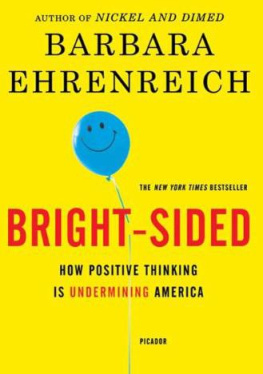

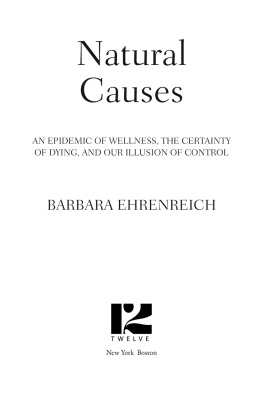

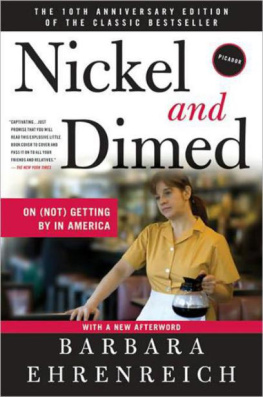

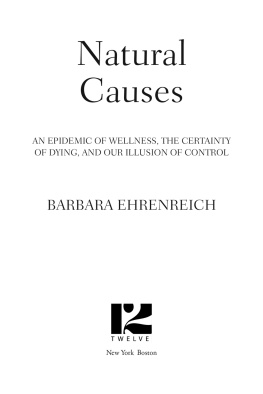
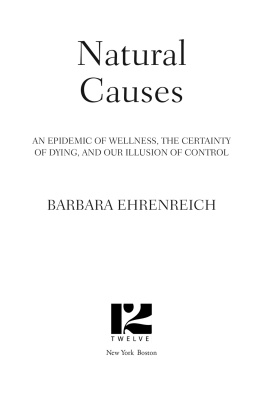
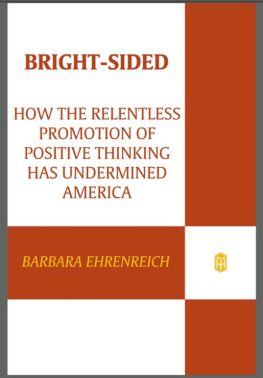


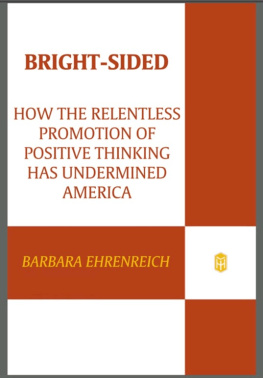
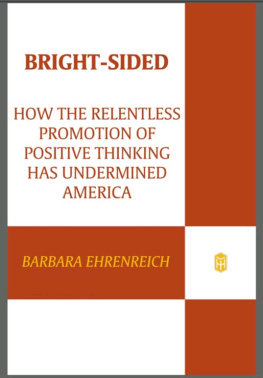



 TM areregistered
TM areregistered
